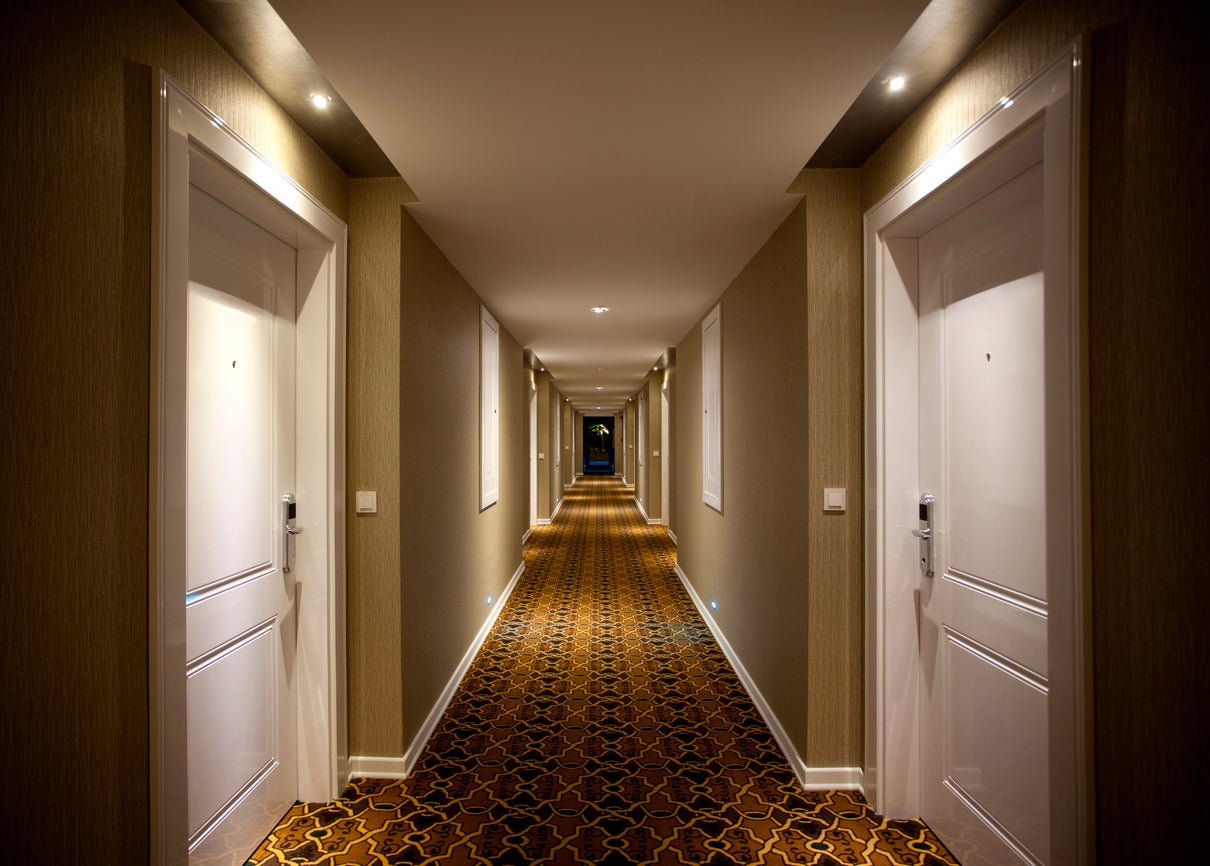Covid can spread between rooms in hotel quarantine, research shows
Hotel room doors were only opened for nurse checks and PCR testing

Your support helps us to tell the story
From reproductive rights to climate change to Big Tech, The Independent is on the ground when the story is developing. Whether it's investigating the financials of Elon Musk's pro-Trump PAC or producing our latest documentary, 'The A Word', which shines a light on the American women fighting for reproductive rights, we know how important it is to parse out the facts from the messaging.
At such a critical moment in US history, we need reporters on the ground. Your donation allows us to keep sending journalists to speak to both sides of the story.
The Independent is trusted by Americans across the entire political spectrum. And unlike many other quality news outlets, we choose not to lock Americans out of our reporting and analysis with paywalls. We believe quality journalism should be available to everyone, paid for by those who can afford it.
Your support makes all the difference.Research in New Zealand has revealed that Covid-19 can be transmitted between hotel rooms that share a corridor.
In one case in July, a single traveller in hotel quarantine in Auckland infected three others in a room across the hallway.
CCTV footage, contact tracing and genetic testing revealed that the virus must have been passed on through air that escaped the hotel room door into the corridor.
The case - published by the US’s Centers for Disease Control and Prevention (CDC) - also showed the effectiveness of vaccination.
The one fully vaccinated traveller in the rooms did not test positive for Covid despite sharing a room with two positive companions for weeks.
The single traveller in the July case had arrived from the Philippines, while the group who then contracted the virus had arrived from the United Arab Emirates, testing negative on landing.
Neither party was allowed to leave their hotel room, but the doors were opened occasionally for nurse checks and food deliveries.
This included some occasions where both doors were opened at once.
"Security camera footage revealed four brief episodes of simultaneous door opening during person A’s infectious period," wrote the research team.
It follows a report in December that one traveller in hotel quarantine in Hong Kong had infected another in a separate room.
"Case-patient A arrived in Hong Kong from South Africa on November 11, 2021, and case-patient B arrived in Hong Kong from Canada on November 10, 2021. Both case-patients had previously received two vaccine doses," wrote researchers in the journal Emerging Infectious Diseases.
"On arrival at the Hong Kong airport, both case-patients stayed in the same quarantine hotel and had rooms across the corridor from each other on the same floor."
"The only time the two quarantined persons opened their respective doors was to collect food that was placed immediately outside each room door. The only other time they might have opened their doors would be for (PCR coronavirus tests), which were conducted in three-day intervals.”
Genomic sequencing of the two individuals’ samples showed that they were infected with near-identical versions of the Omicron variant.
State-managed hotel quarantine is still a reality for travellers arriving to Australia, New Zealand and South Korea, among other nations.
The UK still has hotel quarantine measures in place for countries on its highest-risk red list, but the list was emptied for the second time on 15 December.
Join our commenting forum
Join thought-provoking conversations, follow other Independent readers and see their replies
0Comments